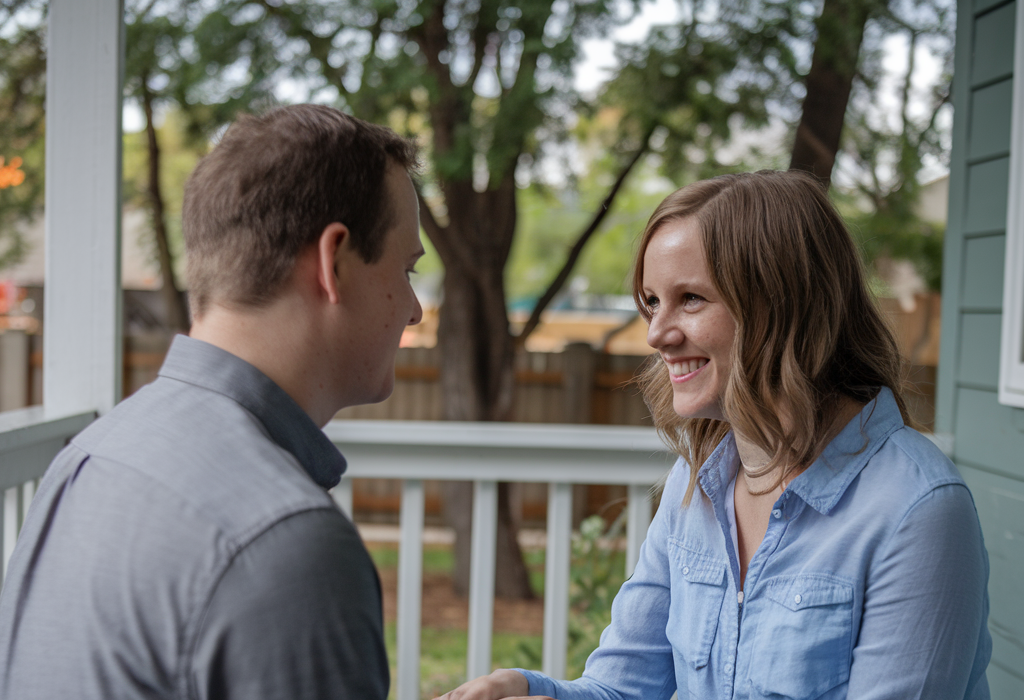
Key points
Here are 3 key points about “green flags in a relationship”:
- Conversation flows naturally.
- You feel comfortable being yourself.
- There is mutual trust and respect.
Contents
Understanding Green Flags through Attachment Theory

Our early life relationships form our expectations for adult relationships, suggests the attachment theory. A secure attachment will develop when an individual meets the others needs on a consistent basis. Promotes confidence and comfort with intimacy. Inconsistent, emotionally distant, and rejecting caregivers may cause insecure attachment. People are scared to get abandoned and get closed off.
Introduction to Attachment Styles
Attachment styles as adults are along a spectrum. People who are secure will have zero problem with closeness or independence. People who are anxious want to be close. People with avoidant attachment styles think intimacy is losing independence. Our attachment style influences what we look for in a partner.
Significance of Secure Attachment
People with a secure attachment experience tend to have healthy relationships which can possibly last longer. People who are secure feel positive about themselves and others. They can keep a closeness between two people but also achieve independence. They also support and communicate well with each other. An environment where relationships flourished. Their style of attaching allows for them to show green flag behaviours.
Recognizing Green Flags in Secure Partners
Green flags of a secure partner includes: Comfortable with closeness and space. They express their needs and feelings. Good listener and compromises, know how to reduce conflicts. Offers reassurance but not being clingy and suffocative. Encourages you to pursue your interests and friendships. Believes in trust, respect, and honesty. Understanding attachment theory can help you identify partners that are capable of healthy, secure attachments. It helps us to find satisfying long-term relationships.
Key Green Flags in a Relationship

Here are some green flags you should look for in your relationship:
Consistent and Open Communication
Having great communication is key for a long-lasting relationship. Couples need to be comfortable sharing their thoughts, feelings, hopes, and concerns with each other openly in order to get to know each other well. It also helps solve conflicts in a healthy way before any resentment builds.
Emotional Availability and Support
Having a partner who is emotionally available and responsive to your needs makes a world of difference. It is the quality of getting reassurance from one another in the good and bad days that builds closeness and bonding in any relationship.
Mutual Respect and Understanding
When two people genuinely value each other as individuals, they accept differences and compromise needs. Your partner should feel valued and empowered to pursue their interest as long as you do not cross the thin line of disrespect.
When two individual person share the same values and vision, relationships go on for a long time. When people have similar goals, priorities and life principles, it fosters a sense of unity, teamwork and purpose in the long-term relationship.
Building and Maintaining a Healthy Relationship

It’s not easy; it takes work. The two must work together to understand and grow with each other. Having openness while communicating what you feel, your needs and your hopes. But also paying attention and agreeing. Give space to your partner to be themself while creating quality time for each other. Cheer on each other’s dreams and passions even if they’re not exactly the same. In the end, relationships are built on trust, respect, seeing your partner’s true self, and more.
Importance of Emotional Intelligence
When you have emotional intelligence, you can understand your feelings and that of your partner too. It means to be able to express emotions in a healthy way, and be able to put yourself in someone else’s shoes. You’ll communicate cleaner, avoid nasty fights, and build more empathy.
The other person can sense the issue before a full-blown fight starts. After fighting they can reflect and say sorry. They may approve of you feelings and wants. Being aware of your emotions make your intimate connection strong and healthy.
Developing Trust and Security
A strong relationship is built on trust. Both partners should be secure and safe with each other. That means we can count on one’s word and one can count on yours. This also entails being open and honest by sharing feelings or fears without judgement. When your partner has your back and you have their back, trust develops. You have a feeling of freedom to be yourself because your partner accepts you. When you have faith in each other, you can face life’s good and bad times together, creating a safe space in the relationship.
Balancing Independence and Togetherness
In successful relationships, you do not lose your individual identity and closeness. You encourage growth and freedom of expression in each other. But you also make time for each other, spending time together. It’s all about finding that sweet balance. Be your own person, but choose to share your life! Your distinct identities make your bond stronger as you come together. It’s really just communication and talking about those independency needs and togetherness needs.
Resolving Conflicts Constructively
All relationship have arguments What’s important is how you manage conflict. Relationship issues are addressed directly in a calm manner. Hear each other to understand each other. Be willing to compromise and apologise. Don’t blame, but find solutions for problems.
Most importantly, don’t resort to name calling or bringing up the past. If emotions get too high, take a break. The goal is to work it out, not get more mad. When you solve your differences constructively, your relationship strengthens and you become more resilient together.
Personal Growth and Relationship Success

When you are opened to growth, it strengthens your relationship. When partners assist each other in becoming better selves, they care. Getting vulnerable is vital for growth, so feel safe sharing both hopes and struggles. A growth mindset also prevents stagnation and encourages engagement from partners. When people grow together, relationships flourish.
Self-Awareness and Attachment Style
Our attachment style determines who we easily connect with or dislike and how we behave with them, what annoys them and more things. When you understand what helps you feel secure or anxious in different relationship contexts, you can communicate your needs and manage your reactions. Essentially, knowing yourself helps you nurture relationships.
Promoting Personal and Partner Growth
Try to grow together with your partner. It helps if we can support each other’s goals, be open-minded, give allow room for change. Never hold each other back. Never lose sight of patience and trust. We should all help each other grow to become the best version of ourselves.
Adapting to Change Together
Talk about how you feel about changes. Make adjustments when needed to assist changes. Disagreements will happen, but stay firm to your commitment. See change as a possibility for having wisdom. Count on each other for stability in tough times.
Changes in life can threaten our relationships but we can weather the storm with a little empathy, flexibility and teamwork.
Frequently Asked Questions (FAQ)
What are some positive signs to look for in a new relationship?
Some green flags early in a relationship are open communication, emotional availability, mutual respect, shared values, and seeing your partner put in effort.
How can you tell if your new partner is a keeper?
Green flags that someone is a keeper include they make you feel safe and supported, you trust each other, you can be vulnerable, they accept you fully, and you both want each other to thrive.
What are indicators that your relationship is healthy?
Signs of a healthy relationship include you feel happy more than unhappy, your partner supports your goals, you resolve conflicts well, and you both feel safe being open and honest.
How do you know if your partner is all in?
Green flags your partner is all in are they prioritize you, include you in their future plans, are affectionate, go out of their way for you, and introduce you to their inner circle.
What are the benefits of dating someone emotionally intelligent?
Benefits of an emotionally intelligent partner are better communication, increased empathy and support, stronger conflict resolution skills, and an overall more satisfying relationship.
What makes for good communication in a relationship?
Good communication involves listening without judgement, owning your feelings, compromising, and expressing appreciation and affection regularly.
How can you build trust in a new relationship?
Build trust by being consistent, following through on promises, giving each other personal space, being emotionally available, and having honest conversations.
What are signs you and your partner are incompatible?
Red flags you’re incompatible include frequent heated conflicts, mismatched core values, poor communication, lack of physical intimacy, and no shared interests.
How do you know if your partner respects you?
Signs of respect are they value your opinions, compromise, speak highly of you, defend you, and don’t belittle your interests or goals.
What makes a relationship last long-term?
Factors for a lasting relationship are shared core values, commitment, intimacy, effective conflict resolution, embracing change together, and maintaining mutual respect.

I am an award-winning author who has deep insights into the world of dating & relationships. I have won several awards including Andromeda Magazine – Fantasy Short Fiction Story award amongst several other awards and writing achievements.